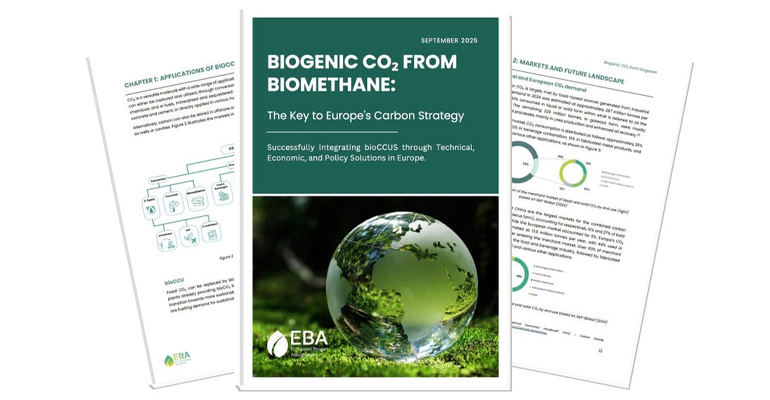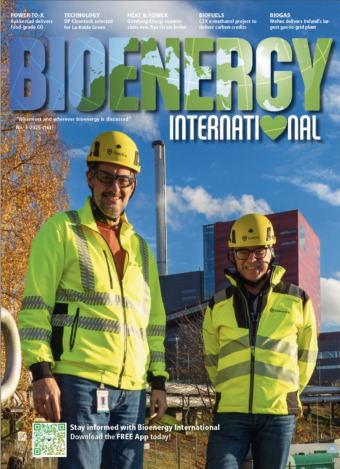The European Biogas Association (EBA) has launched a comprehensive paper exploring the valorisation of biogenic carbon dioxide from the biogas sector, enabling the EU’s carbon strategy to reduce emissions and support a sustainable, low-carbon economy as a scalable and competitive solution.
Europe’s demand for carbon dioxide (CO2) is rising, driven by emerging markets and stricter regulations for green products and industrial decarbonisation.
According to the EBA report “Biogenic CO2 from Biomethane: The Key to Europe’s Carbon Strategy“, biogenic carbon dioxide (bioCO2) from the biogas sector can meet this demand while simultaneously reducing greenhouse gas (GHG) emissions.
Separated during biogas upgrading
In the biogas sector, bioCO2 captured during upgrading to biomethane, aka renewable natural gas (RNG), can either be stored underground (bioCCS) or used as a raw material for e-fuels, chemicals, building materials, greenhouses, and food and beverage production (bioCCU).
Unlike fossil CO2, which releases long-stored carbon into the atmosphere, biogenic CO2 is part of the natural carbon cycle and does not increase the overall atmospheric CO2 content, making it a sustainable option that can achieve net or negative CO2 removals.
Cost-effective and scalable
The biogas sector is already capturing biogenic CO2 in a cost-effective and scalable way. The latest EBA data shows that the biogas sector is set to become a leading industry in green CO2 capture in Europe within the next few years.
Currently, 125 plants capture 1.17 million tonnes of bioCO2 annually, equivalent to around 14 percent of Europe’s merchant liquid and solid CO2 (dry ice) demand.
By 2027, capture capacity is expected to exceed 2 million tonnes, with additional opportunities with the expansion of gasification, biohydrogen production, or flue gas capture.
By 2040, EU biomethane plants could capture up to 89 million tonnes of bioCO2 annually, more than 25 percent of the carbon capture required to meet the EU Climate Law targets.
This would make a significant contribution to the EU’s overall carbon capture goal of 344 million tonnes per year.
Biogenic CO2 from the biogas sector is key to achieving Europe’s energy transition and climate objectives. The sector is strategically positioned as an affordable pathway, and it will become increasingly important in the near future. With the right standardisation and policy framework, it can fully contribute to the EU’s carbon strategy, said Harmen Dekker, CEO of EBA.



